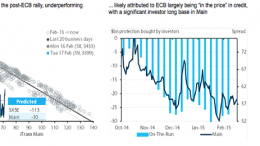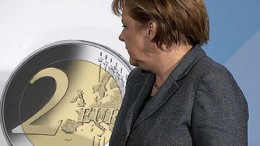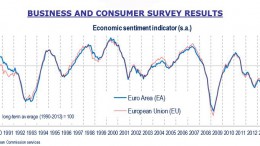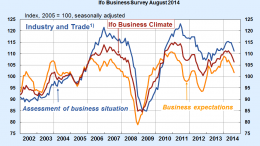MADRID | The Corner | In August the Economic Sentiment Indicator (ESI) fell in the euro area (by 1.5 points to 100.6) and the EU (by 1.2 points at 104.6). Once again the core Europe does not bring any good news, where sentiment dropped in Italy (by 4.1p to 97.8), Germany (by 1.9p to 104.1 ) and France (by 0.6p to 95.1), while sentiment remained flat in Spain (103.). Among the data published by the European Commission today, the industrial confidence fell in the EA to -5.3 in August from -3.8 in July and construction sentiment dropped to -28.4 from -28.2. Sentiment in the services industry declined to 3.1 from 3.6 and retail trade to -4.6 from -2.3. Consumer confidence remained at -10.






